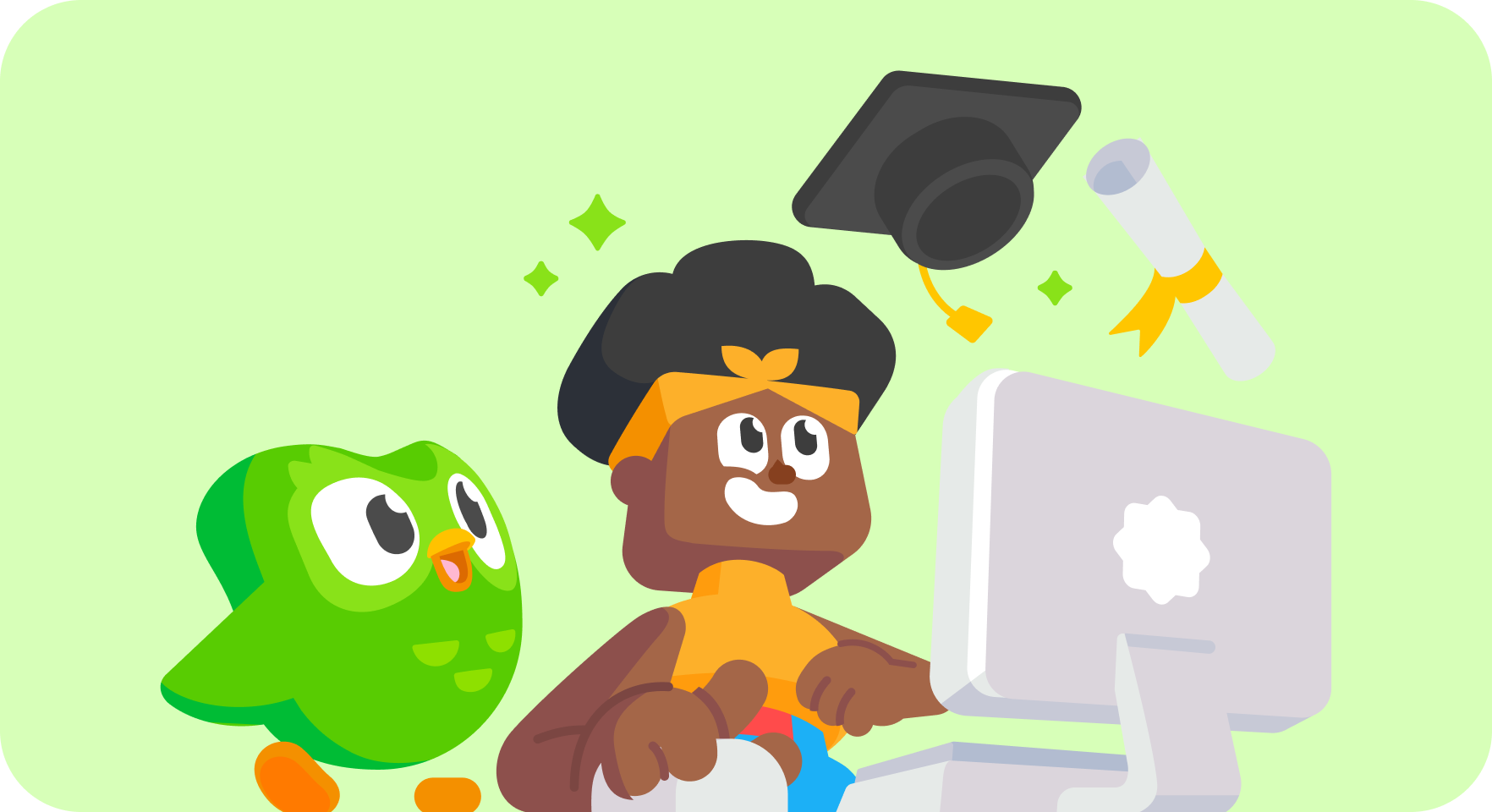Duolingo Writing Topics
The Duolingo English Test (DET) writing section features two primary task types: Write About the Photo and the Writing Sample, designed to assess your ability to quickly articulate thoughts through clarity, grammar, and structural coherence.
Write About the Photo
This task requires test-takers to look at a given photo and write a descriptive or narrative response based on what they see. The goal is to assess the test-taker's ability to observe details, generate ideas, and articulate them clearly in written form within a limited time.
Writing Sample
As per the 2026 test pattern, the earlier “Read Then Write” task is now part of the Writing Sample section. In this task, test-takers are provided with a written prompt to respond to within a time limit. This evaluates comprehension, organisation, and the ability to express thoughts clearly and accurately in writing.
The Duolingo Writing Test follows a pattern aimed at assessing various aspects of your writing skills:
- Descriptive Writing: You'll describe images, focusing on clarity and detail.
- Responsive Writing: You'll read texts and respond, demonstrating comprehension and expression.
- Vocabulary and Grammar: The test evaluates your ability to use diverse vocabulary and correct grammar.
- Coherence and Cohesion: Your responses should be well-organised and logically structured.
Common Duolingo Writing Topics
The writing section usually pulls topics from everyday situations, study plans, social issues, and global themes. Grouping them this way helps you understand the patterns instead of memorising a long list.
Personal and Reflective Themes
1. Personal Experience
- You may be asked to describe a memorable event and explain why it mattered to you. These prompts check clarity, detail, and your ability to reflect naturally.
2. Hobbies and Interests
- Topics focus on an activity you enjoy and what it adds to your routine. This helps the test measure how well you explain personal preferences.
3. Family and Relationships
- Questions often involve describing family traditions, values, or a person who influenced you. The goal is to see how you express emotions with structure.
4. Future Goals
- These prompts ask you to outline your study or career plans and the reasons behind them. They test clarity of thought and intention.
Academic and Societal Themes
1. Education
- You may write about online learning, school experiences, or how education shapes opportunities. These tasks check your ability to give balanced viewpoints.
2. Technology
- Prompts explore how digital tools affect communication, work, or study. You are expected to use modern vocabulary and explain real-world impact.
Work and Career
- Topics include teamwork, leadership, internships, or workplace challenges. Clear sequencing and examples matter here.
Culture
- You may describe a festival, tradition, or cultural difference you have experienced. The focus is on explanation, not definition.
Social Issues
- These tasks involve opinions on equality, community support, or public safety. They test reasoning rather than emotional storytelling.
World-Focused Themes
Health
- Prompts can involve lifestyle habits, well-being, or a health challenge you observed. The aim is to write with clarity rather than technical detail.
Environment
- You may be asked to explain the importance of conservation or share a personal action you take for sustainability.
Travel
- These topics focus on a trip, a place you want to visit, or how travel changes perspective. They check descriptive skills and cultural awareness.
Types of Questions Asked In Duolingo Writing Topics
The Duolingo Writing Topics include two major question formats that test how clearly and logically you can write in English. These formats remain the same in 2026, but with a few small interface and timing updates on the official test.
1. Write About the Photo
In this task, you will be presented with an image and asked to write a short descriptive paragraph about it. This type of question assesses your ability to observe, interpret, and articulate your thoughts clearly. Here’s how to approach it:
How to Approach It:
- Focus on Key Details: Begin by carefully examining the photo and noting the main subjects, setting, and actions.
- Maintain Clarity: Mention these details to paint a clear picture and use descriptive vocabulary.
2. Writing Sample (Previously Read, Then Write)
In the latest 2026 Duolingo format, the earlier “Read Then Write” task is now merged into the Writing Sample. You’ll receive a written prompt and need to respond within five minutes.
This type of question evaluates your reading comprehension, organisation, vocabulary range, and grammar accuracy.
Common Duolingo writing topics for this task include education, technology, travel, and social issues. Reviewing real Duolingo essay topics and sample Duolingo writing topics with answers helps you learn how to develop balanced, well-structured essays under time pressure.
If you want to understand how this fits into the overall test structure, you can review the complete Duolingo English Test Syllabus for 2026. You can also explore our guides on Duolingo Writing Tips and Duolingo Speaking Questions to build a more connected preparation plan.
Duolingo Writing Topics: Sample Question And Answers
The prompt provides the topic for your writing, and you have 30 seconds to read and understand it before the 5-minute timer starts.
Use this time wisely to formulate your response. Organise your thoughts, create an outline, and plan your writing within the given time frame. Stay focused and use the full five minutes to express your ideas coherently.
The Duolingo sample question in 2026 typically looks like this:
If you want to practise with similar timed tasks, you can look at our detailed guide on the Duolingo Practice Test, which explains how to simulate real test conditions and build speed.
Tips To Ace Your Duolingo Writing Topics
To maximize your performance, focus on refining four key areas: structural organization, grammatical accuracy, vocabulary range, and dedicated proofreading time for every single response.
The following techniques will help learners understand the specific requirements of Duolingo's writing exercises:
Top High-Scoring Writing Strategies
- Grammar & Punctuation: Ensure accurate spelling, grammar, and punctuation throughout your response. (Note: The DET accepts both American and British spelling, but verify specific question types like Read and Complete for US-only spelling.)
- Vary Sentence Structure & Vocabulary: Diversify your sentence structure and word choice to showcase sophisticated vocabulary and grammar. Incorporate various linking words to enhance coherence.
- Expand and Support Ideas: Expand on your main points with relevant details and real-world examples. This ensures your response is substantive.
- Practice Good Writing Habits: Regularly practice writing, even short tasks like social media posts, in English. Install an English keyboard to integrate practice into your daily routine.
- Check Your Work (Proofread): Always allocate time to review your writing for any spelling, grammar, or punctuation errors before submission. Ensure your response is 100% relevant to the provided topic.
- Treat it as a Short Essay: Approach the task seriously. A clear introduction, two focused points, and a brief closing statement make your response easier to follow.
If you want a broader view of scoring behaviour and test-day strategy, you can also explore our guide on Top Duolingo English Test Tips & Tricks You Haven’t Heard Before.
Conclusion
Consistent practice with the latest Duolingo writing topics and sample answers strengthens your overall DET preparation. It helps you get comfortable with the test format, organise ideas faster, and write with more confidence during the 2026 exam.
For expert test prep and study-abroad guidance, connect with LeapScholar today.






